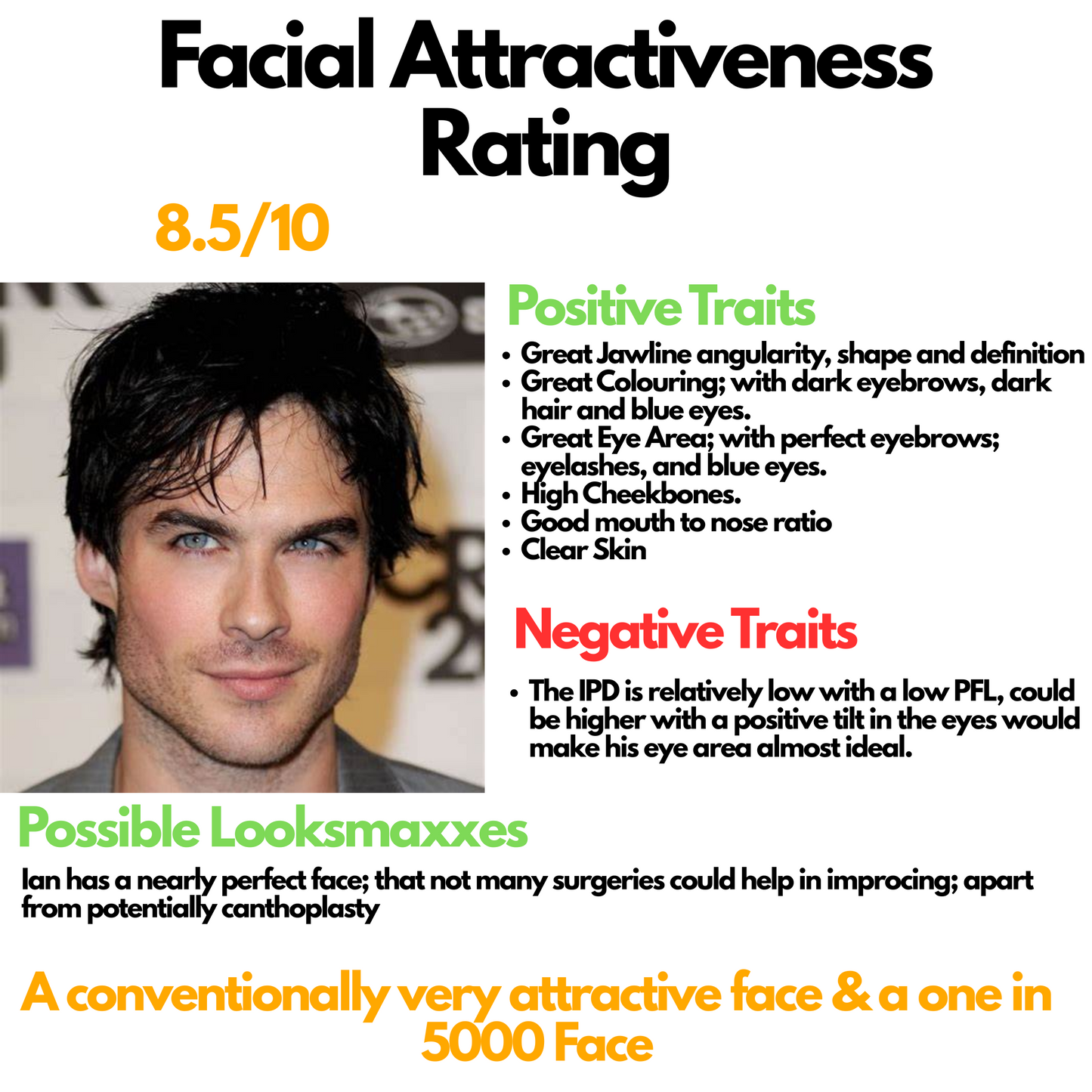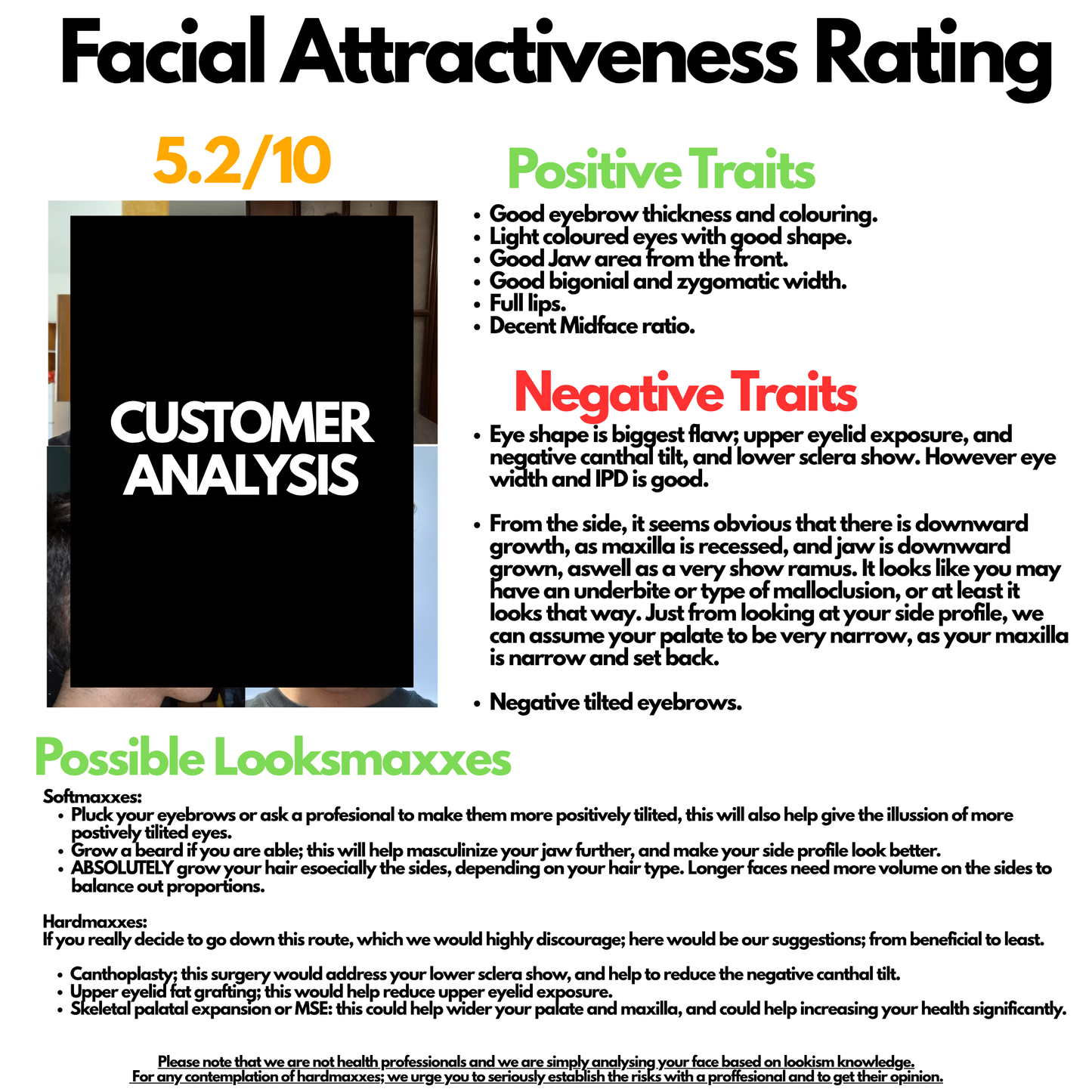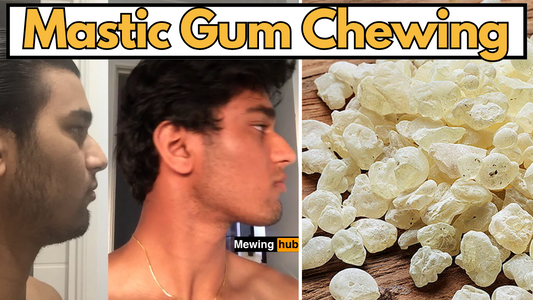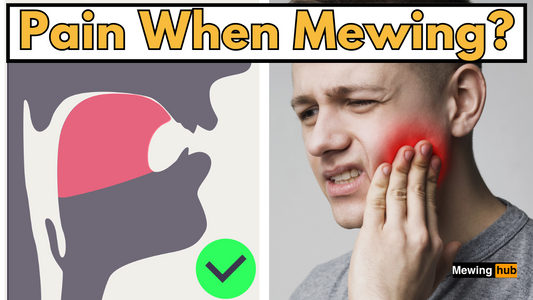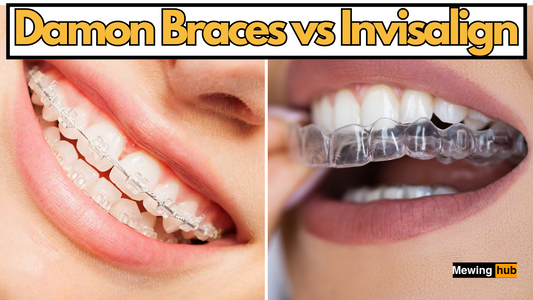Understanding Canthal Tilt: Key to Facial Attractiveness in Looksmaxxing

Share
The human face is a mosaic of features, each contributing to the overall aesthetic appeal and balance. Among these features, the canthal tilt holds a unique position, influencing the perception of beauty, youthfulness, and health.
But what exactly is canthal tilt, and how can one improve it?
This article explores the concept of canthal tilt, its significance in the looksmaxxing community, and methods to enhance it.

What is Canthal Tilt?
Canthal tilt refers to the angle formed by the line connecting the inner and outer corners (canthi) of the eye relative to the horizontal plane.
It is a crucial element in determining the aesthetic appeal of a person's eyes and overall facial appearance.
A positive canthal tilt, where the outer corner is higher than the inner corner, is often associated with attractiveness, youthfulness, and vitality.
Conversely, a negative tilt, where the outer corner is lower than the inner, can give a tired, aged and overall unattractive appearance.
Why is Canthal Tilt So Important to be Attractive ?
A positive canthal tilt is considered attractive for several reasons.
First, it creates an illusion of larger and more open eyes, which is a trait often associated with youth and health. Larger eyes are perceived as more expressive and engaging, making them a focal point of human interaction and attraction.
Second, a positive canthal tilt can enhance the overall harmony of the facial features. It contributes to a balanced and symmetrical appearance, which is universally recognized as a key factor in human beauty. Symmetry is pleasing to the eye and often perceived as a marker of genetic fitness.
Moreover, a positive canthal tilt can convey an impression of alertness and attentiveness. This can make a person appear more confident and approachable, further adding to their attractiveness.
The Role of Mewing in Improving Canthal Tilt

Mewing, a technique popularized by Dr. John Mew, involves proper tongue posture and jaw positioning to potentially influence facial structure.
The premise is that by positioning the tongue against the roof of the mouth and maintaining correct jaw alignment, one can induce subtle changes in the maxilla (upper jaw) over time.
Moving the maxilla up and forward can have several aesthetic benefits, including the improvement of the canthal tilt.
As the maxilla advances, it provides better support for the eye sockets, potentially leading to a more favorable canthal tilt.

This structural support not only enhances the eyes' appearance but also contributes to a more balanced facial profile. It's important to note, however, that changes from mewing can vary greatly among individuals and require patience and consistency.
Enhancing Under-Eye Support with Volufiline
Another aspect of improving the canthal tilt involves addressing the under-eye area. Volufiline, an ingredient derived from the roots of the Anemarrhena asphodeloides plant, is known for its ability to increase localized fat where applied.
When used under the eyes, Volufiline can help improve the support for the lower eyelid, which in turn can positively affect the canthal tilt by providing a more lifted and youthful appearance.
The application of Volufiline-containing creams or serums can complement the structural benefits achieved through mewing by enhancing the soft tissue volume beneath the eyes.
This additional support can reduce the appearance of hollows or bags under the eyes, contributing to a more rejuvenated look.
Recently, Volufiline has gained traction within the looksmaxing community. They believe that Volufiline can give you hunter eyes, or at least make your eyes appear more hunter-like, if that makes sense.
Checkout our Volufiline Oil to kickstart
your looksmaxing journey today!
The Science Behind Canthal Tilt and Facial Aesthetics
Studies have shown that a positive canthal tilt is often perceived as more attractive. This is likely because it conveys a look of alertness and youthfulness, which are generally associated with health and vitality.
Conversely, a negative canthal tilt can make a person appear more fatigued or older. The canthal tilt is a subtle feature, but its impact on facial aesthetics is significant. Improving it through natural methods like mewing and Volufiline application can enhance overall facial harmony.
Practical Steps to Improve Canthal Tilt
Consistent Mewing Practice:Use Volufiline:
Maintain Overall Facial Health:
Addressing Common Concerns
Some individuals may find it challenging to achieve a positive canthal tilt due to genetic factors or underlying health issues. In such cases, it's essential to manage expectations and understand that while significant improvements can be made, complete transformation may not be possible for everyone.
Conclusion: Embrace Your Unique Features
Improving the canthal tilt involves a combination of structural and cosmetic approaches. Mewing can offer a non-invasive way to potentially alter the facial skeleton, particularly the position of the maxilla, thereby influencing the canthal tilt positively.
Additionally, the use of Volufiline for under-eye support complements these changes by improving the soft tissue aspect, enhancing overall facial aesthetics. As with any facial modification technique, it's essential to approach these methods with realistic expectations and consider consulting with a healthcare professional before starting new practices.
Remember, beauty is multifaceted, and while the canthal tilt plays a role in facial aesthetics, confidence and self-care are paramount. Embrace your unique features and consider these tips as part of a holistic approach to wellness and beauty.





